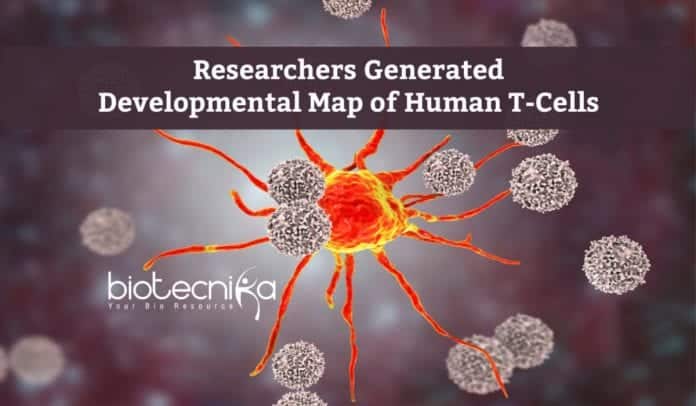Developmental Map of Human T-Cells
A comprehensive roadmap for how T-cells develop in the human thymus has been generated by a team of investigators at the Saban Research Institute of Children’s Hospital Los Angeles, led by Chintan Parekh, MD.
Fighting off invaders like pathogens or cancer cells, T-cells are a type of white blood cell involved in the immune response. For developing highly effective immunotherapies, like CAR-T and for treating diseases arising from abnormal T-cell development, like leukemia and immunodeficiency, understanding human T-cell development is crucial.
Dr. Parekh said, “Our study specifically reveals a high-resolution picture of human T-cell development, while most previous studies have been done in mice. Given the biological differences between species, in order to design novel immunotherapies and to generate the information we need to understand human disease, it is critical to specifically study human T-cells.”
The various stages of T-cell development in the human thymus, including the multitude of genes that switch on or off at each stage, were mapped by the investigators using single-cell sequencing technology to study cells isolated from human thymic tissue. The stages of development and patterns of gene activity unique to humans were discovered by charting the different developmental routes
that the most immature cells in the thymus may take as they progress to maturity.Greater insights can be led through this knowledge into diseases arising from T-cell mediated autoimmune diseases (type 1 diabetes, rheumatoid arthritis) and leukemia (T-cell acute lymphoblastic leukemia), T-cell deficiencies or abnormal T-cells such as immunodeficiency disorders (severe combined immunodeficiency disease or SCID).
The findings could also help in the advancement of one of the most significant advances in cancer treatment, immunotherapies like CAR-T therapy. In patients who have undergone bone marrow transplantation for the treatment of cancer and other diseases, a greater understanding of T-cell development is needed to advance treatments to expedite the recovery of the immune system in such patients.
Source
Developmental Map of Human T-Cells






























